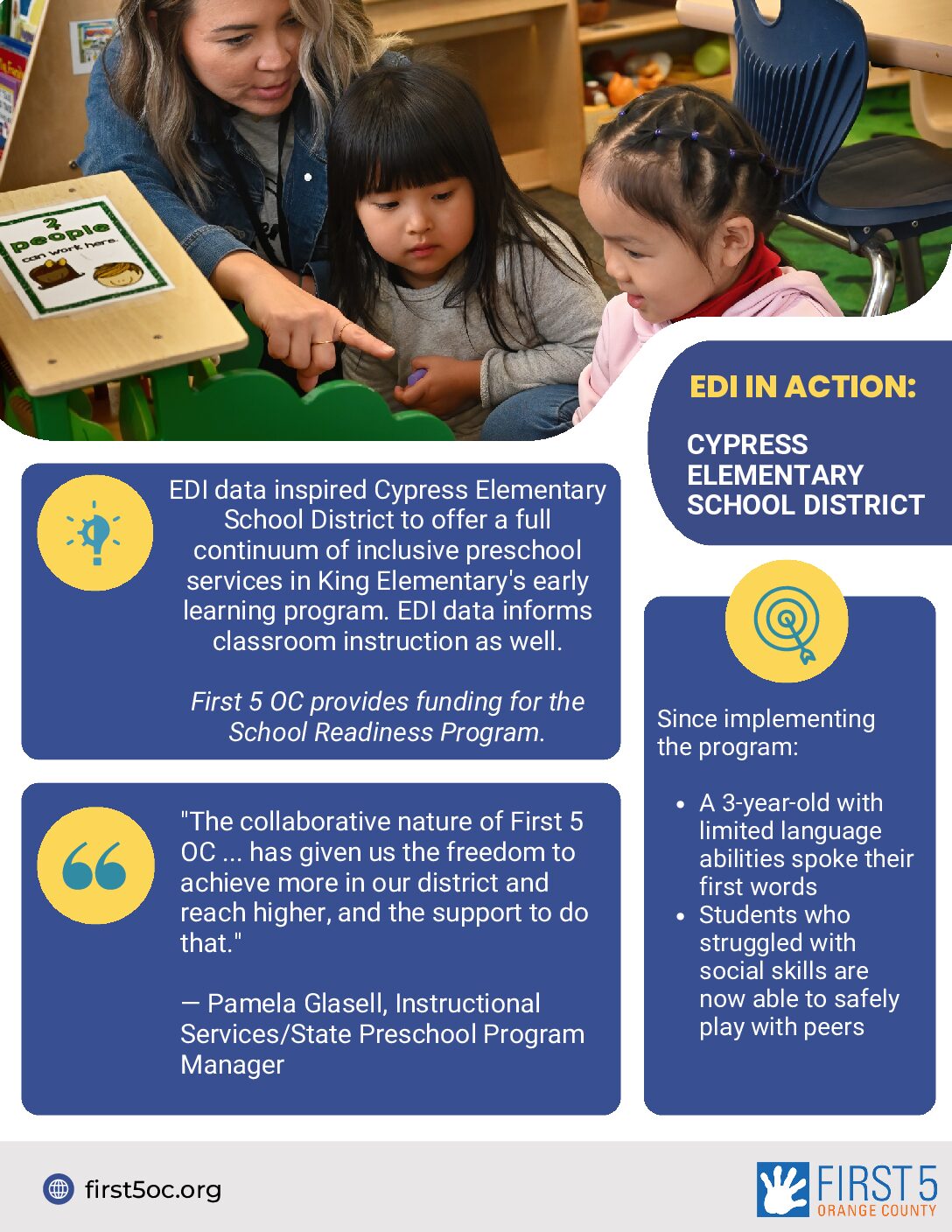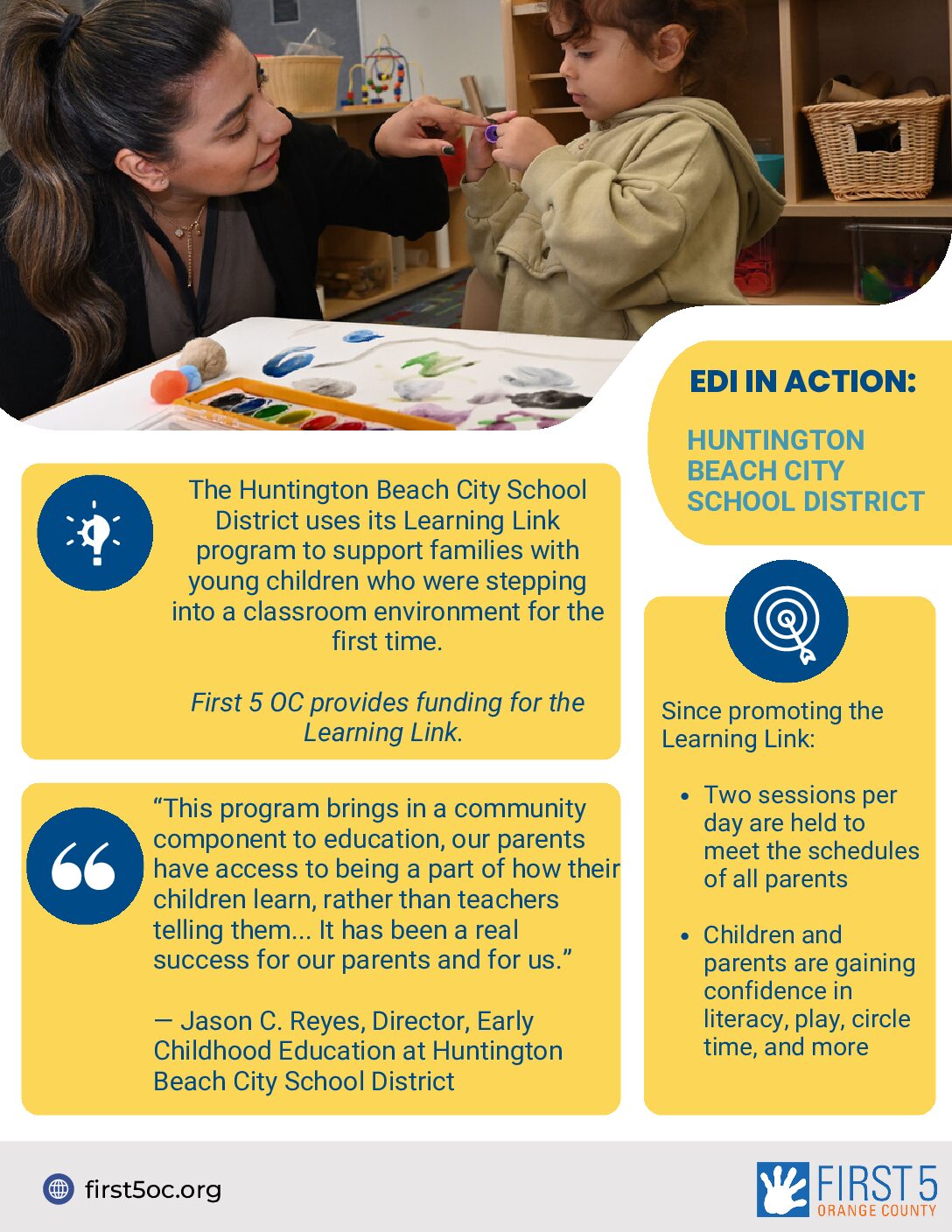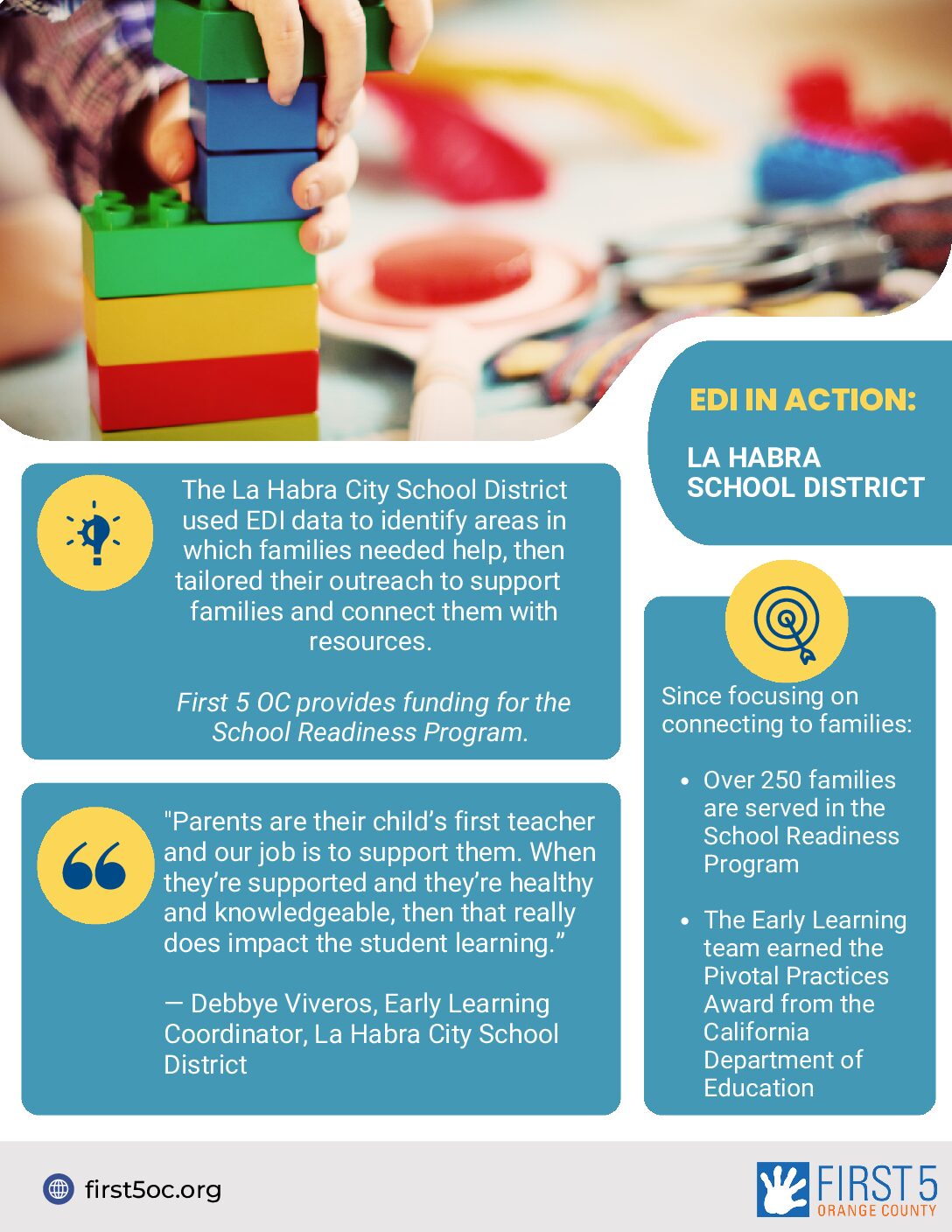EDI
Explore the Data
Request Form
EDI Spotlight
Early Development Index
Developed over the course of nearly 30 years, the Early Development Index (EDI) is a population-based measure of a child’s development in five key developmental areas:
- physical health
- social competence
- emotional maturity
- language and cognitive development
- communications skills and general knowledge
First 5 Orange County partners with the UCLA Center for Healthier Children, Families and Communities families, as well as the county’s 25 school districts to gather and analyze EDI data. The EDI has been tested internationally and found to be a reliable indicator of children’s readiness for kindergarten.
Orange County is currently the only county in the nation to gather these data from every public school and school district that has a kindergarten population.

Why is the EDI Important?
EDI data shows us how our communities are supporting our children in getting them ready for school and life. The data also helps us to understand what programs and opportunities are helping and where additional resources need to be provided to ensure the success of the entire community.
The EDI data is also being used as a springboard to engage families around their children’s needs and desired outcomes for their communities, as well as informing our work with systems partners.
The EDI data is helping policy makers, community-based organizations, educators, school districts, and child advocates highlight the success of programs and policies in place, uncover pockets of need, and collaborate to ensure necessary support reaches all children.
Equity and the EDI
First 5 Orange County recognizes that not everyone grows up with the same opportunities, resources, and support. A condition for all children to achieve their full potential is a society where inclusion, diversity, and equity are a value and a priority, and policies and practices are put in place to address the structural barriers that perpetuate equity gaps and racism.
We are proud of the thoroughness and effort that went into collecting the comprehensive kindergarten readiness data provided through the EDI. The EDI tool has been thoroughly tested for its predictive validity and reliability, and has been demonstrated to accurately reflect children’s actual outcomes over time. However, we recognize that the EDI data is only a snapshot of children’s abilities and experiences, and that children and families are much more complicated than a single data set can capture.
In our effort to embrace diversity and inclusion as strengths, we are committed to using our EDI data to identify disparities in outcomes for young children. Because it is teachers who complete the EDI data collection, during the teacher trainings, we discuss bias and ways to avoid it on the EDI. The EDI teacher guide highlights those questions where teachers need to be especially careful to avoid bias.
We are committed to presenting data in a way that does not perpetuate imbalances or inequalities. As we share the EDI data with our communities, we are working to promote diversity, address inequities in children’s health, development, and early learning, and to incorporate the voices of the families we serve as we use the data to drive practice and policy change. We recognize that the EDI data belongs to the community and are working closely with our communities to ensure that all children can thrive.
For more information or to request specific data, please contact First5OC@cfcoc.ocgov.com or use the Request Form.
Five Developmental Domains
Physical Health & Well-Being
measures whether students have the absence of disease or impairment, access to adequate and appropriate nutrition, and gross and fine motor skills. Necessary gross and fine motor abilities to complete common kindergarten and first grade tasks, including items such as controlling a pencil or turning pages in a book, without tearing them.
Social Competence
measures whether students are meeting general standards of acceptable behavior in public places, controlling their behavior, cooperating with others, showing respect for adult authority, and communicating feelings and needs in a socially acceptable manner.
Emotional Maturity
is characterized by a balance between a child’s curiosity about the world, an eagerness to try new experiences, and some ability to reflect before acting. A child who is fearful and reluctant to engage in new activities misses learning opportunities that are seized upon by a child with a positive approach to life.
Language & Cognitive Development
measures vocabulary size and a child’s ability to name letters and recognize letter sounds within words. Cognitive skills involve the ways in which children perceive, organize, and analyze information.
Communication Skills & General Knowledge
measures a child’s ability to understand verbal communications with other adults and children and to verbally communicate experiences, ideas, wishes, and feelings in a way that can be understood by others.
The EDI in Action
Find out more below about how school districts, cities and businesses are utilizing the EDI to make systemwide changes and positive impacts on young children.
“The goal was to create a partnership with the school, service providers, and caregiver that could support the early development of the child from multiple angles. In reviewing the EDI data for their specific schools, parents shared how important the tool was to increasing school readiness by reaching children at a younger age. They mentioned that their role as parents was to be equipped with the knowledge and foundational learning that would support their children from birth and beyond.”
Paola Padilla, Director, Santa Ana Early Learning Initiative (SAELI)





